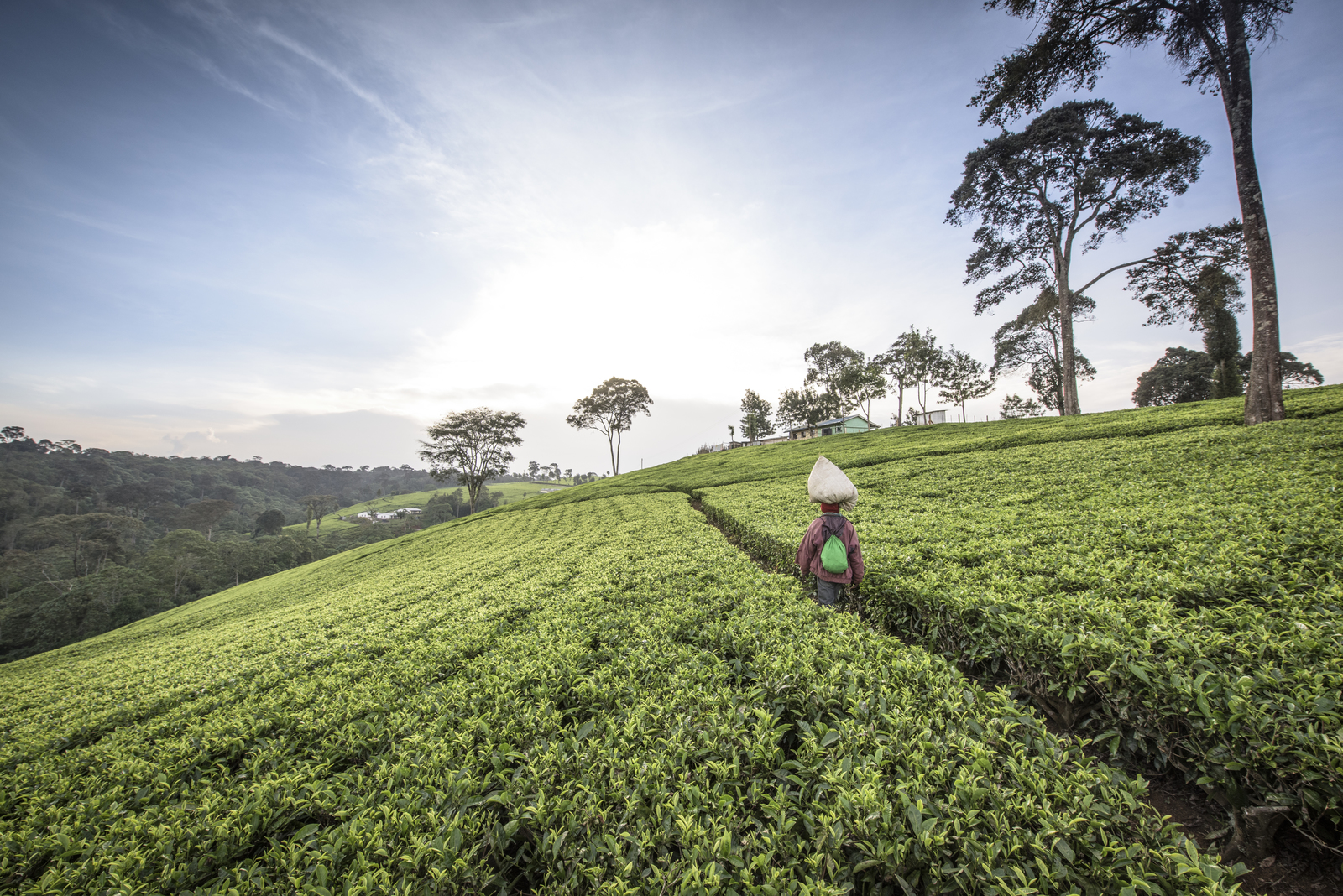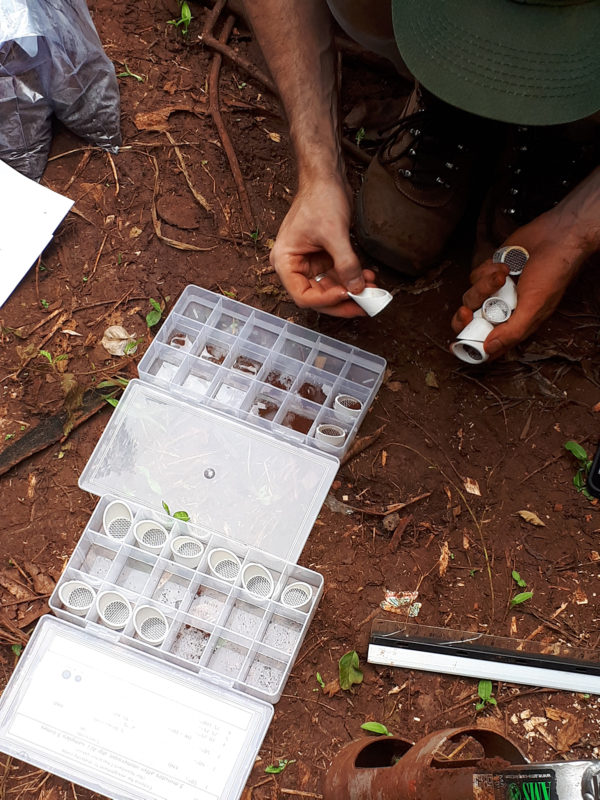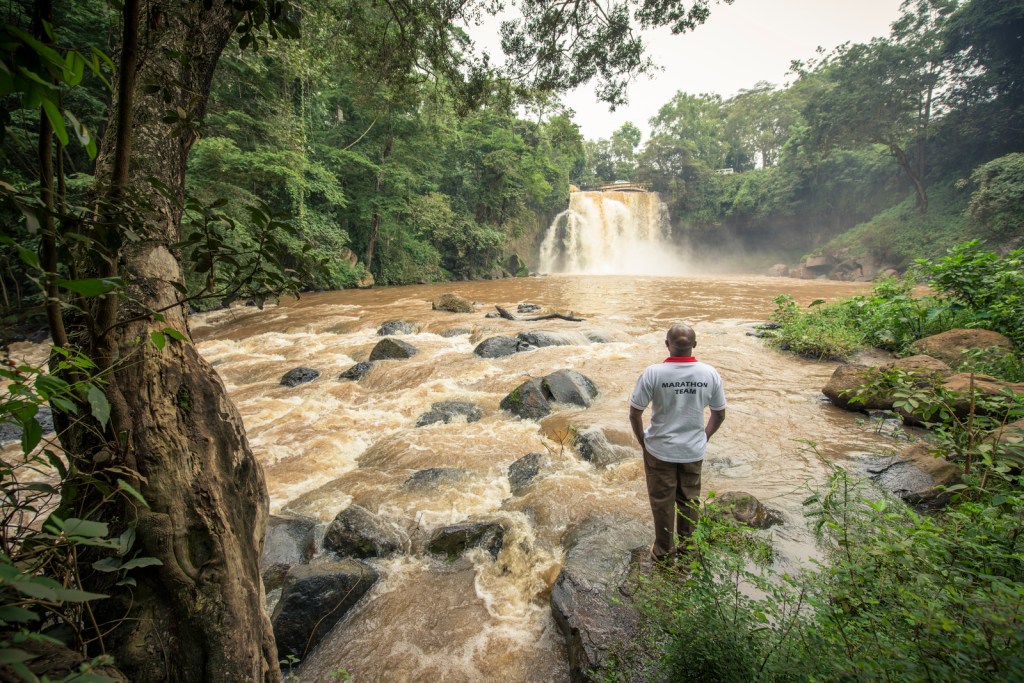More effectively protecting the environment often requires experimenting with new ideas—because the status quo is not necessarily prioritizing nature’s values and benefits.
Within the Upper Tana-Nairobi Water Fund, TNC is experimenting with incentives to get thousands of farmers to adopt farming practices that reduce erosion across Kenya’s Tana River watershed. Water in the Upper Tana is needed not only for the health of natural systems, but also for hydroelectric energy and drinking water for 6.5 million people, and sedimentation creates challenges for water quality and quantity.
When I first visited the Upper Tana in July 2018 I was impressed by the dense quilt of farms laid over the steep slopes of the many small micro-watersheds wedged between Mount Kenya and the Aberdare Mountains National Park.
These farms are mash-ups of coffee, tea, maize, bananas, fruit trees, forage grasses, and riparian wood lots—usually all on less than two hectares. I was left wondering how the water fund could facilitate coordinated practice adoption by so many farmers each growing a diverse mixture of crops.
Water funds are conservation experiments in leveraging capital for the human benefits of conservation. Utilities and soda companies, for instance, are willing to pay to try to keep water clean. These funds support non-profits to work with land owners to adopt land management practices that increase water retention and reduce nutrients and sediment in rivers. Those sediments and nutrients are the soil. For water funds surrounded by agriculture, the more sediment in rivers, the more expensive the water treatment and the less soil on the land for producing food.
Many water funds rely on a large web of private landowners to adopt practices across a watershed. That’s a tough scale of behavior change to achieve, and behavior change is all about people believing in the benefits of the change. If the practices that reduce erosion also benefit the land owner, that makes the scale of adoption easier to achieve.

That’s the case in the Upper Tana where TNC is working with partners to install water pans that capture rainwater and keep that water from eroding soil. But reducing erosion isn’t enough to benefit a farmer unless reducing erosion also maintains or increases soil fertility. Which is why I was in Kenya, working with the Africa program to test the fertility of soil in the Upper Tana Water Fund.
Most soils of the Tana area are highly acidic, which means that plants cannot efficiently use the nutrients in soil. These soils aren’t acidic because of mismanagement, but because they’re old and as soils get older their minerals change, which can lead to more acidity. In the Upper Tana, reducing erosion won’t make soils less acidic, and it won’t make them more fertile.
Increasing soil fertility and crop yields in the Upper Tana requires reducing soil acidity. Which is why the TNC’s Global Lands Soil Science team is working with the Africa region, the Upper Tana Nairobi Water Fund, and Crop Nutrition Laboratories to analyze soil samples and make recommendations to farmers about how to improve their fertility, like adding lime to reduce acidity and increase nutrient availability for crops.

Our experiment is that by providing farmers with evidence-based, farm-specific guidance on how to improve soil fertility, they will be more willing to engage with us to implement other practices that will benefit conservation, even if they don’t improve agricultural outcomes. We need that because every farmer counts to get the scale of adoption required to have a significant impact on soil and water conservation.
After collecting and analyzing over 200 soil samples, we are organizing to have local agronomists and extension agents re-visit all of the farms to explain the results and make recommendations about how to improve soil fertility. At the same time, we have begun to scale up this approach to over 1,000 other farms—about half of which are new to the Water Fund effort.
By scaling up, we hope to get insight into the results of our experiment: can targeted, farm-level recommendations spark adoption at the scale needed to ensure the city of Nairobi—one of Africa’s megacities—a sustainable water supply? Stay tuned.




Soil science, hydrology, ecology and organic agriculture should be major components in school curriculums across the globe-(should’ve been)